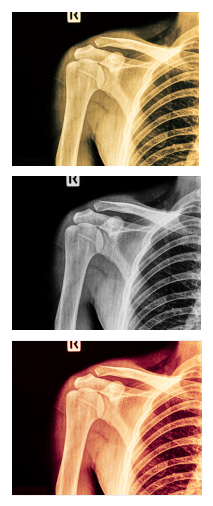Milwaukee Rotator Cuff Repair
Wisconsin's Shoulder Doctor Helps Workers Recover
 Rotator Cuff Repair is a surgical procedure performed by Wisconsin Shoulder Doctor, Ted Gertel, to treat a torn rotator cuff tendon or tendons. The goal of this surgery is to re-attach a torn rotator cuff tendon to the site it tore away from and allow it to heal - most commonly to the head of the humerus bone (the “ball” of the upper arm bone). It is commonly done as an all-arthroscopic repair (repair visualized using a camera and video monitor; performed using small surgical instruments through very small incisions) or as a mini-open repair (repair performed with direct visualization through a smaller incision, usually 3 to 5 cm long). Traditionally an open repair was done (even larger incision than a mini-open repair), but advancements in surgical techniques have allowed less invasive procedures as described above.
Rotator Cuff Repair is a surgical procedure performed by Wisconsin Shoulder Doctor, Ted Gertel, to treat a torn rotator cuff tendon or tendons. The goal of this surgery is to re-attach a torn rotator cuff tendon to the site it tore away from and allow it to heal - most commonly to the head of the humerus bone (the “ball” of the upper arm bone). It is commonly done as an all-arthroscopic repair (repair visualized using a camera and video monitor; performed using small surgical instruments through very small incisions) or as a mini-open repair (repair performed with direct visualization through a smaller incision, usually 3 to 5 cm long). Traditionally an open repair was done (even larger incision than a mini-open repair), but advancements in surgical techniques have allowed less invasive procedures as described above.
Factors that help determine if a rotator cuff repair is necessary include:
- Your pain level (especially if pain will not go away after trying non-surgical treatment options)
- Tear was caused by a recent, traumatic injury
- Size of rotator cuff tear
- Significant shoulder weakness
- Loss of shoulder motion and function
- Your prior level of activity
MRI Arthrogram Before Surgery
A MRI Arthrogram is commonly obtained to help determine the severity of the rotator cuff tear in preparation for surgery. If the tear is large and/or a complete tear, then rotator cuff repair is often required to help decrease pain, improve strength, and restore shoulder function. Successfully gauging the severity of your injury is what makes an MRI Arthrogram so essential. If there is a partial tear, the surgeon will determine if a rotator cuff repair is indicated depending on its severity. Often, a partial tear of the rotator cuff can be treated non-surgically (rest, physical therapy, pain control) or may need only a trimming/shaving procedure called arthroscopic debridement. In some cases, a rotator cuff repair cannot be completed if the quality of your tendon tissue and bone is poor.
Surgery is done as an outpatient procedure (you are able to go home the same day). There are always risks and benefits of surgery, and there are never any 100% guarantees regarding the outcome of surgery. The surgeon’s goal is to minimize the risks and help guide you to the best path of recovery. Rehabilitation is very important after surgery. Initially, during the first 3-4 weeks after surgery your arm will be immobilized in a sling to allow early healing of your rotator cuff.
After the initial period of rest, physical therapy and a home exercise program will help you gradually regain shoulder motion, improve strength, and restore shoulder function. Complete recovery time may take several months or sometimes even up to a year. The majority of patients notice significant improvements by 4 to 6 months after surgery. Most patients report significantly less pain as well as increased shoulder motion, strength, and overall function after recovering from a rotator cuff repair.